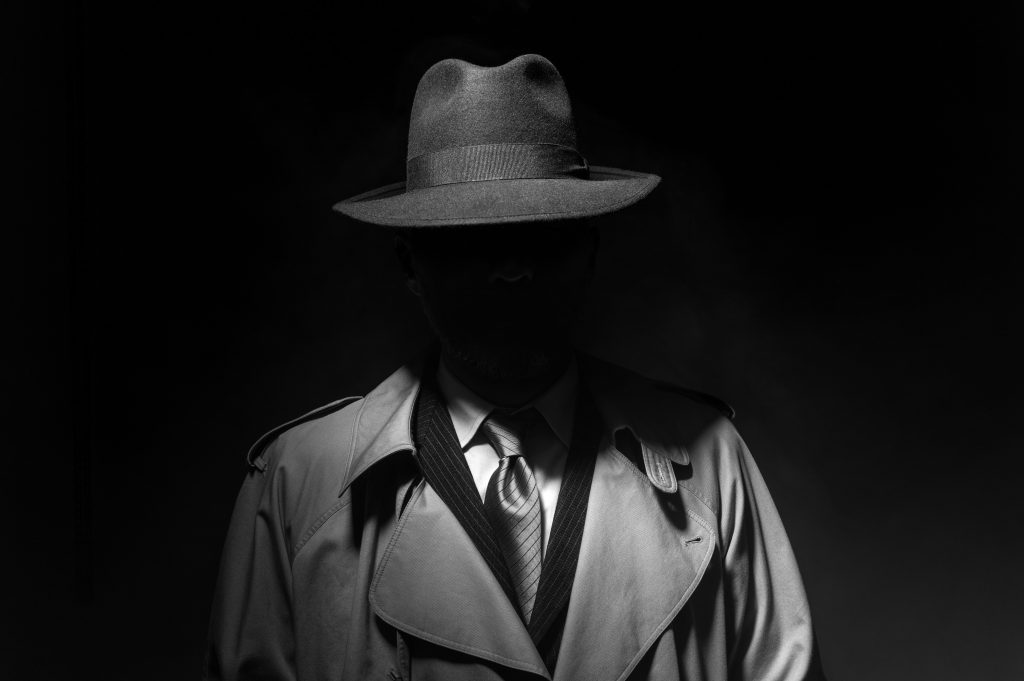
In the world of private investigations, undercover operations stand out as a core and highly effective technique for solving cold cases. These specialized investigations play a crucial role in unraveling unsolved crimes that have left law enforcement agencies stumped and victims’ families in despair. However, they come with their fair share of challenges.
When faced with cold cases, traditional investigative methods often reach a dead end due to lack of evidence or exhausted leads. This is where undercover operations step in, as they offer a unique approach to gathering information and building a case. By assuming covert identities, skilled private investigators can infiltrate criminal networks and establish trust with suspects, enabling them to access crucial information that was once out of reach.
What Is Private Investigation?
Private investigation refers to the practice of gathering information, conducting inquiries, and uncovering evidence to solve various types of cases. Private investigators are professionals who are hired by individuals, businesses, or organizations to carry out investigations that are not within the jurisdiction of law enforcement agencies. These investigations can encompass a wide range of issues, including but not limited to, uncovering criminal activity, finding missing persons, conducting background checks, and investigating fraud or infidelity.
Private investigators utilize a variety of methods and techniques, such as surveillance, interviews, and research, to gather information and build a case. Their work often involves analyzing financial records, conducting undercover operations, and utilizing forensic technologies to provide thorough and accurate findings. Overall, private investigation serves as an essential tool for individuals and organizations seeking to uncover the truth and obtain the evidence needed to support their claims or address their concerns.

The Role of Undercover Operations in Private Investigations
Undercover operations play a critical role in private investigations, providing private investigators with a powerful tool to gather valuable information and evidence. These operations involve investigators assuming false identities and infiltrating targeted groups or organizations to obtain firsthand knowledge of criminal activities or gather intelligence.
One of the main benefits of utilizing undercover techniques is the ability to gain access to information and activities that would otherwise be inaccessible through conventional investigative methods. By blending into the target environment, undercover agents can establish trust, develop relationships, and gain valuable insights that can help solve cold cases or uncover new leads.
However, undercover operations also come with their fair share of challenges. Maintaining the authenticity of the undercover identity while ensuring personal safety is crucial. Investigators must constantly navigate a fine line between gaining the trust of the individuals they are investigating, while avoiding crossing any ethical or legal boundaries.
Additionally, undercover operations require meticulous planning and ongoing coordination with a dedicated team. The success of an undercover operation relies on thorough research, training, and the ability to adapt to rapidly evolving situations.
Benefits of Undercover Operations
Undercover operations play a vital role in private investigations, offering numerous benefits in gathering evidence and obtaining crucial information. The ability to blend seamlessly into the target environment allows undercover investigators to gather evidence without alerting suspects, granting them unparalleled access to key individuals and activities.
One of the main advantages of undercover operations is the ability to generate fresh leads. By immersing themselves in the target community or organization, investigators can gather information that may have previously been unknown or inaccessible. This provides an opportunity to uncover new evidence, identify potential suspects, and ultimately solve cold cases.
Moreover, undercover operations allow investigators to interview witnesses without raising suspicion. This is particularly valuable in cases where witnesses may be reluctant to cooperate with law enforcement or private investigators. By maintaining their undercover identity, investigators can establish trust and gather information that may be crucial to solving the case.
Private investigators have a unique advantage when it comes to conducting undercover operations. Unlike law enforcement agencies, they have the flexibility and resources to dedicate a specialized team solely to the undercover investigation. This enables them to focus on gathering evidence and obtaining valuable insights without the time constraints and competing priorities faced by law enforcement personnel.
Challenges Faced by Undercover Agents During Investigations
Undercover agents play a crucial role in solving cold cases and gathering vital information that can lead to the identification and apprehension of criminals. However, this specialized investigative technique comes with its fair share of challenges. First and foremost, maintaining a credible undercover identity can prove to be extremely difficult. Agents must blend seamlessly into their surroundings while navigating complex social dynamics and avoiding suspicion. They must constantly stay alert and adapt to changing circumstances to ensure their cover isn’t blown.
Additionally, undercover agents often face psychological stress as they are required to engage with criminals and witness illegal activities firsthand. They must navigate a moral and ethical tightrope to maintain their credibility without participating in unlawful actions.
Furthermore, the lack of direct supervision and support can be a significant challenge for undercover agents. They often have limited communication with their superiors, which requires them to make quick decisions and solve problems independently. Overall, the challenges faced by undercover agents highlight the need for meticulous planning, training, and ongoing support to ensure the success of their operations.

The danger of Exposure or Detection By Suspects or Witnesses
Undercover operations are a crucial tool for private investigators in solving cold cases. However, the danger of exposure or detection by suspects or witnesses during these operations cannot be underestimated. The potential risks involved in being recognized or discovered by the individuals involved in the investigation can have serious consequences.
Being exposed as an undercover agent can jeopardize the entire investigation and put both the investigator and any potential witnesses at risk. Suspects who become aware of an undercover agent’s true identity might alter their behavior, destroy evidence, or even become violent. Witnesses, if they feel threatened or intimidated by the suspect, may also be reluctant to come forward or cooperate further.
The consequences and complications that may arise from exposure range from failed investigations and lost evidence to physical harm for both the investigator and any witnesses involved. Not only does exposure derail the progress made on a case, but it can also compromise the safety of those involved and undermine the efforts of law enforcement agencies.
Maintaining cover and avoiding detection is a constant challenge for undercover agents. They must adapt to different environments, build credible aliases, and convincingly portray their assumed identities. Remaining undetected requires careful observation, quick thinking, and the ability to anticipate the behavior of suspects and witnesses.
Difficulty in Maintaining Professionalism and Objectivity While in Character
Maintaining professionalism and objectivity while undercover is one of the biggest challenges that agents face during investigations. When assuming a different identity, agents must immerse themselves completely into their role, blurring the lines between their real personalities and the character they are portraying.
Staying in character is vital for gaining the trust and cooperation of suspects and witnesses. By convincingly playing the part, agents create an environment where individuals feel comfortable disclosing sensitive information. However, this level of immersion can also be personally challenging. It requires agents to detach themselves emotionally from the situations they encounter, constantly reminding themselves that the role they are playing is not their true self.
The risk of emotional interference during undercover work is a real concern. Agents may find themselves developing genuine relationships with suspects or forming attachments to witnesses. These personal emotions can cloud their judgment and compromise their ability to objectively evaluate evidence and make informed decisions.
To successfully navigate these challenges, agents undergo extensive training to develop emotional resilience and compartmentalize their feelings. They must always remember that their primary goal is to gather crucial information and solve the case while ensuring their own safety and that of others involved.
Legal Issues Surrounding Undercover Work
Undercover work in private investigations presents various legal issues that must be carefully considered. While this specialized investigative technique can be effective in solving cold cases and gathering crucial evidence, it also poses potential risks and ethical considerations.
One legal concern is the infringement on privacy rights. Undercover agents must operate within the boundaries of the law, respecting individuals’ constitutional rights and ensuring that their methods do not violate any legal protections. This includes obtaining proper authorization for surveillance and ensuring the legality of any evidence collected during the operation.
Ethical considerations also come into play during undercover work. Agents must balance the need to gather information with the potential harm or emotional distress it may cause to individuals involved. Maintaining professional conduct is paramount, as any misconduct or abuse of power can jeopardize the credibility of the investigation and compromise the admissibility of evidence in court.
Furthermore, laws governing undercover work may vary between jurisdictions, requiring investigators to be well-versed in the legal restrictions of the specific area they are operating in. Adhering to these legal boundaries is crucial to avoid legal disputes and protect the rights of both the investigator and the individuals involved.
Types of Techniques Utilized By Private Investigators During Undercover Operations
During undercover operations, private investigators employ a range of techniques to gather information, infiltrate criminal networks, and ultimately help solve cold cases. These techniques are vital in conducting effective investigations and providing valuable support to law enforcement agencies.
Surveillance is a key component of undercover work, allowing investigators to discreetly observe and document the activities of individuals or organizations under investigation. Through careful observation, investigators can gather crucial evidence and uncover hidden connections. Infiltration is another technique utilized, where investigators insinuate themselves into targeted groups, gangs, or organizations to gain trust and collect information from within.
Establishing false identities is a common practice during undercover operations. Posing as someone else allows investigators to blend in with the subjects of their investigation, gaining their confidence and facilitating the collection of accurate and relevant information. Covert communication methods are also used, such as encrypted messaging, to ensure communication remains confidential and secure.
Gathering evidence is a priority during undercover work. Private investigators collect information and document activities that can be admissible in court or presented to law enforcement agencies for further investigation. This evidence can help uncover new leads and support the resolution of cold cases.

Conclusion
In conclusion, undercover operations play a vital role in private investigations. Through the use of false identities, surveillance, and infiltration, private investigators are able to gather crucial evidence and uncover hidden connections. The ability to blend in with the subjects of their investigation allows investigators to gain trust and collect accurate and relevant information. Covert communication methods ensure the confidentiality and security of sensitive information. By gathering admissible evidence, investigators can support the resolution of cold cases and provide valuable leads to law enforcement agencies. Overall, undercover operations are an essential tool in the toolkit of private investigators, enabling them to effectively uncover the truth and bring closure to unsolved crimes.





